For a few years now we have been distributing fly parasites to our clients as a new approach to fly control that aims to reduce reliance on chemical solutions and ultimately reduce the on farm fly population. We have seen some fantastic results over the years on farm and have decided to spread the message about these “Friendly Flies” further as part of integrated pest management on farm.
More about fly parasites:
Called Friendly Flies, the parasites enable livestock farmers to take a proactive, cost-effective approach to issues caused by biting and nuisance flies such as summer mastitis and New Forest Eye, together with reduced grazing time through increased cow movement and subsequent reduced yield. In turn, farmers are able to reduce insecticidal and antibiotic use and improve potential herd performance.
Friendly Flies are shipped in juvenile stage to the UK, where on entry they must meet with Defra approval to achieve licence. On arrival to the vet practice, they are being made available to livestock farmers for distribution to muck heaps and slurry lagoons where the flies hatch and actively search for biting and nuisance fly pupae to parasitise.
Female Friendly Flies pierce the nuisance fly maggot pupae, lay up to 350 eggs per day and on hatching, the parasites subsequently eat the maggots. Over time, this cycle naturally reduces the nuisance fly population. Friendly Flies are distributed on farm by the practice’s VetTechs. Application is recommended on a fortnightly basis throughout the fly season.
“Friendly Flies provide a natural, long-term, cost-effective solution to reducing the use of traditional potentially hazardous chemicals including pyrethrins and pyrethroids which are non-specific and after continued use can demonstrate evidence of resistance build up,” says Mark Hickinson. “These chemicals can also put farmers health at risk when spraying in a closed environment.
“Whilst parasitic flies are scheduled to improve overall animal health and subsequently reduce antibiotic use, they can also enhance welfare and performance. Working conditions will be improved, particularly in milking parlours.
“Friendly Flies are also noted for encouraging other insect predators to develop, such as beetles and red mite predators,” he said adding: “We welcome the opportunity to offer farmers Friendly Flies – an additional new tool to their seasonal preventative health plans.”
Friendly Flies have been picked up by the national farming press including Farmers Weekly and Farmers Guardian – please click on the images to the right to view the articles. If you would like more information on fly parasites and how they could help on your farm, please do not hesitate to contact us on 01948 663000 or contacting us through the website.
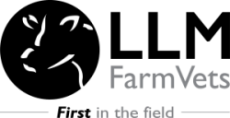
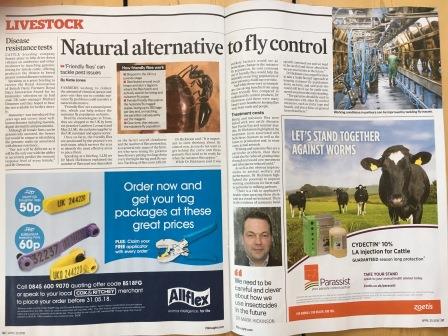
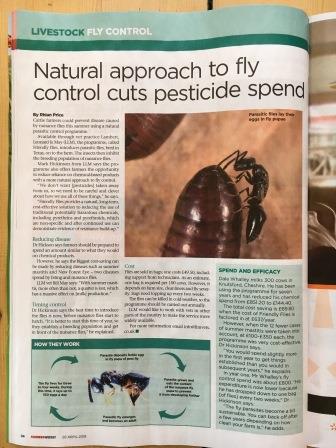
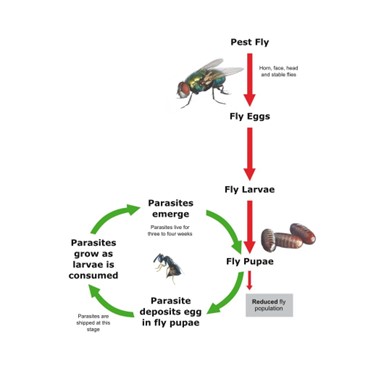

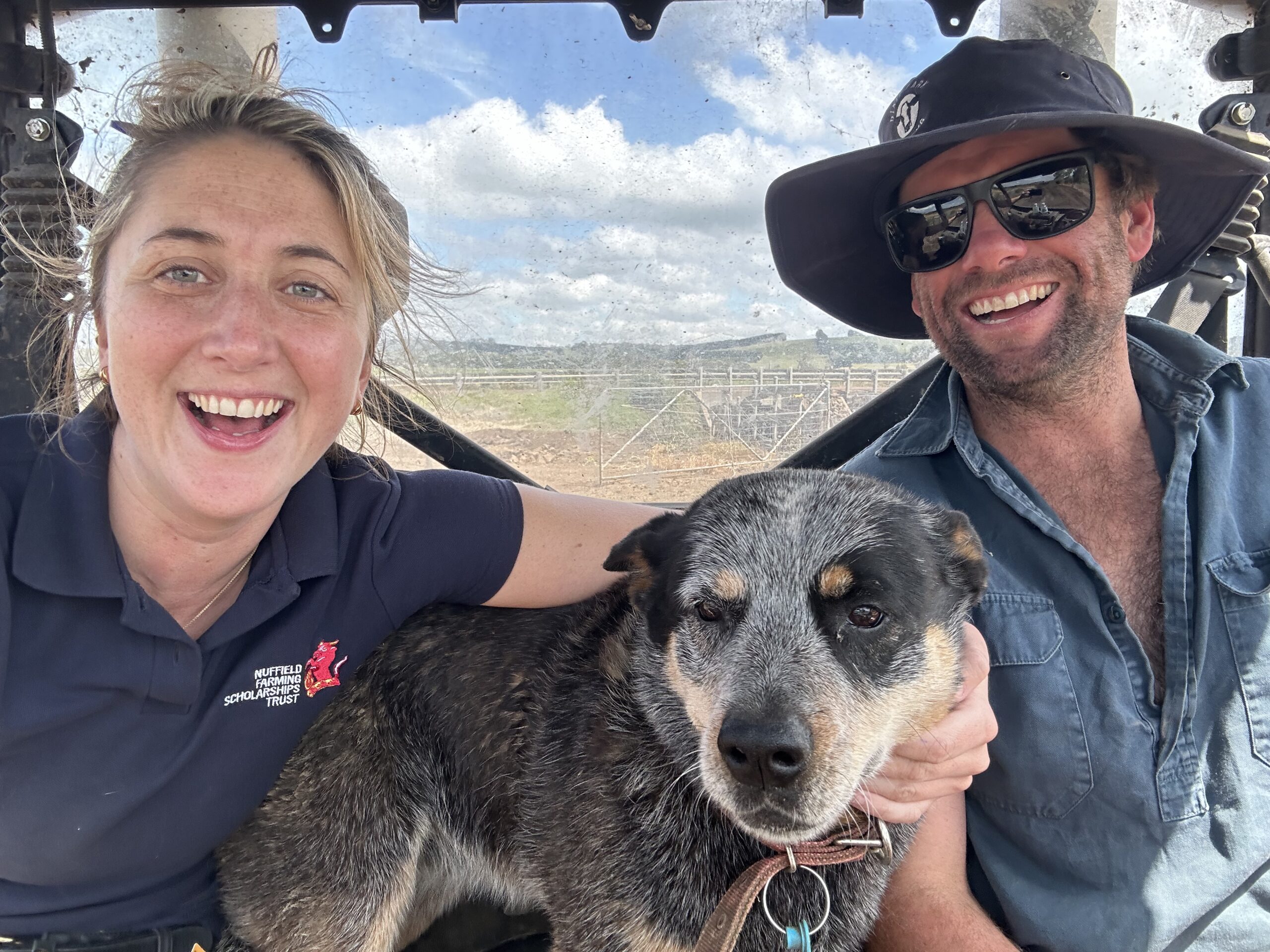

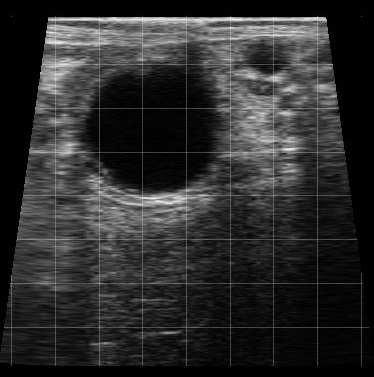



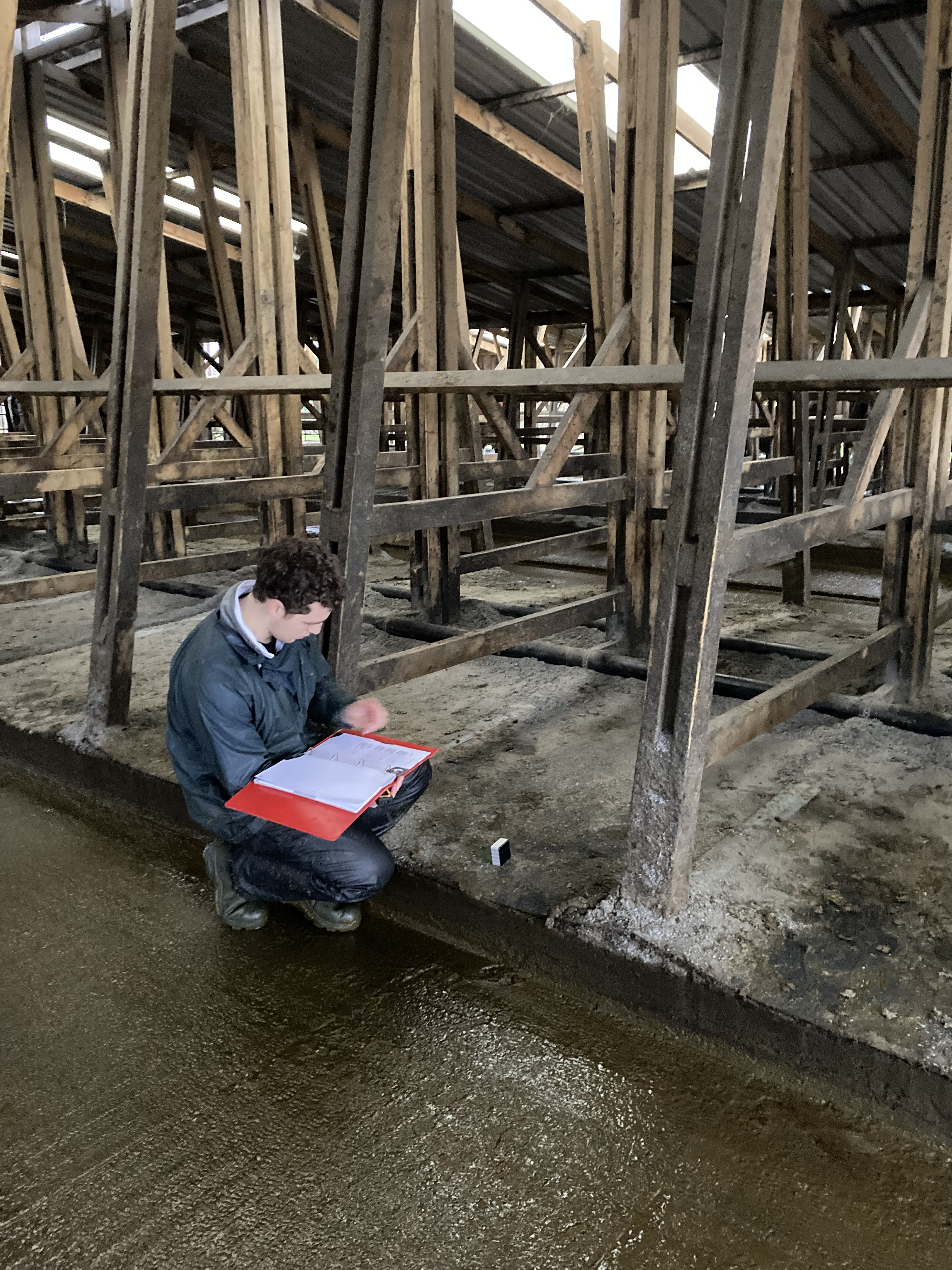


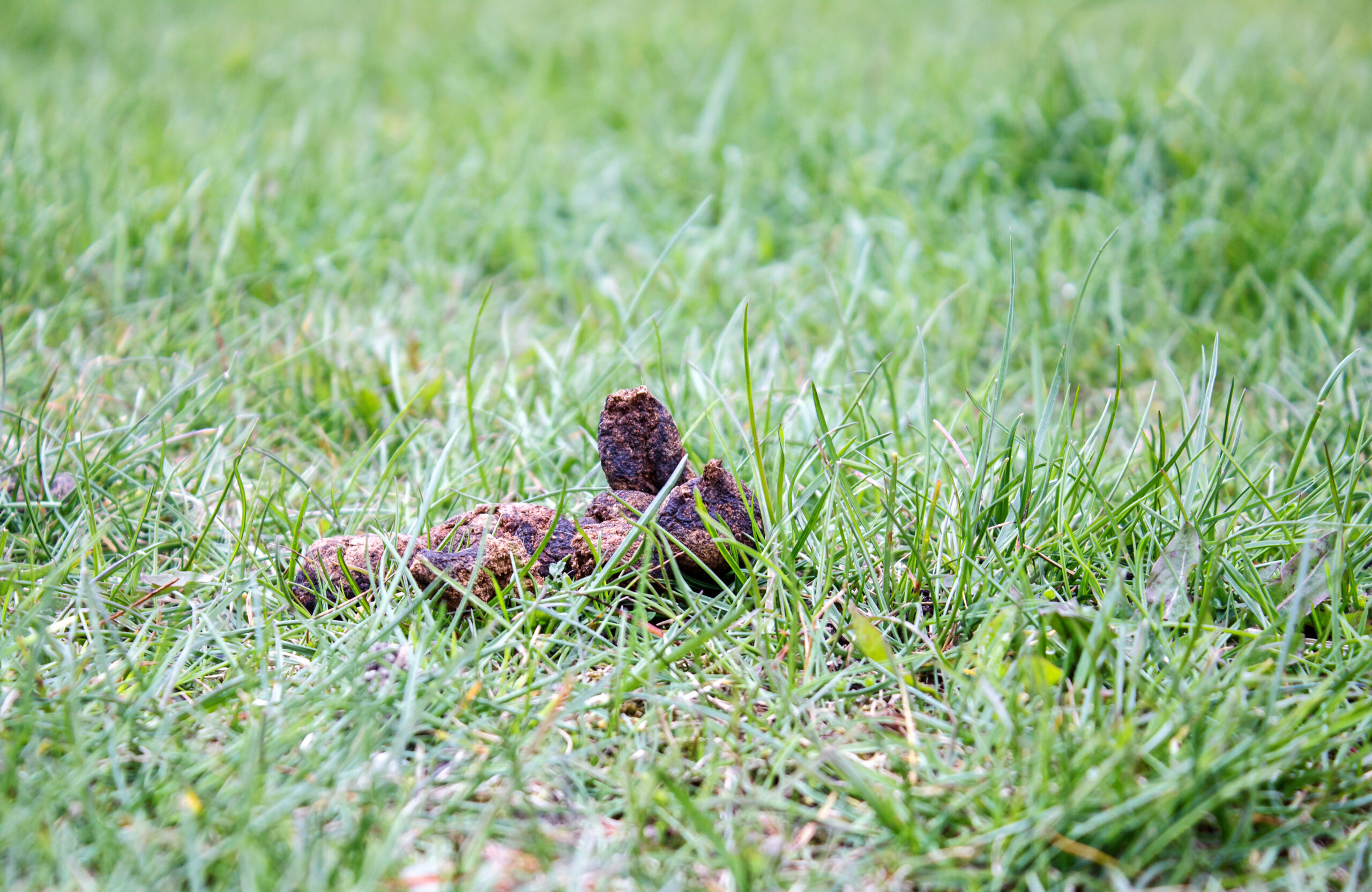

Leave A Comment